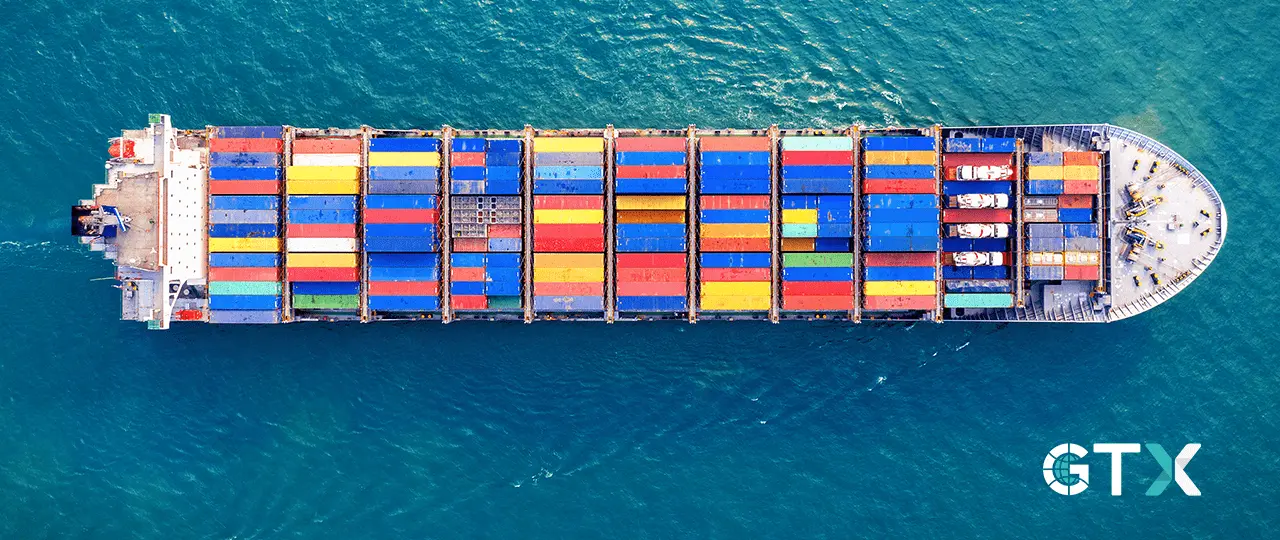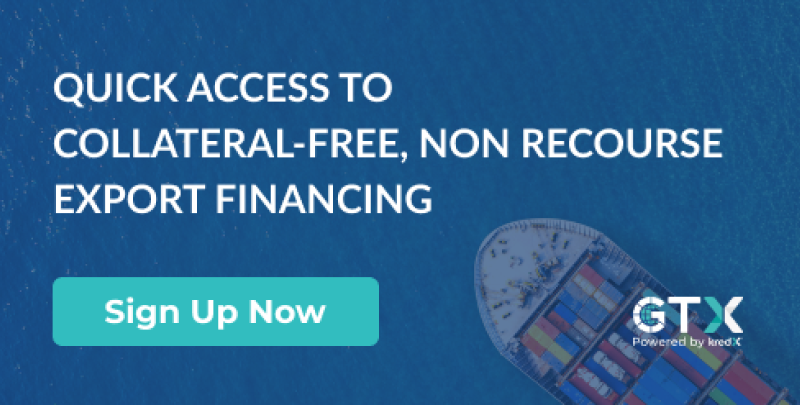Export Factoring in Morbi: A Pathway to Growth
Morbi, a dynamic hub in Gujarat, India, is distinguished for its thriving industrial sectors, including ceramics, clocks, and paper products. These industries have positioned Morbi as an emerging force in the global export arena. However, growth often brings financial pressures, particularly in terms of cash flow, due to delayed payments from international clients. This is where export factoring provides a viable financial solution. Read more

Morbi Export Landscape
Morbi, known as the ‘Ceramic City’ of India, boasts a robust industrial base that has become a cornerstone of the region's economy. Its strategic geographic location contributes significantly to its export prowess, providing efficient connectivity to major international markets.
Key Export Sectors
1. Ceramics
Morbi is home to one of the largest clusters of ceramic production in India. It supplies a substantial portion of India's ceramic requirements and exports various ceramic products, including tiles, sanitary ware, and tableware, to countries all over the world.
2. Clock Manufacturing
The city is also a significant player in the clock manufacturing sector. Various designs and types of clocks produced in Morbi cater to both national and international markets, marking the city as an important timepiece exporter.
3. Paper Products
With a strong base in industrial paper production used for packaging and other purposes, Morbi’s paper mills contribute to the region’s export figures.
4. Plastic and Packaging
Leveraging advancements in plastic technology, Morbi manufacturers export plastic bags, bottles, and other packaging materials, which are in demand for their quality and pricing.
5. Traditional Craft and Agro Products
Morbi and its surrounding regions are involved in the export of traditional handicrafts and agricultural products, including spices and cotton, enhancing the diversity of the export portfolio.
What are the Challenges Faced by Morbi Exporters?
Exporters in Morbi, despite their successes, confront several challenges that can impact their growth and sustainability in international markets. These challenges stem from both internal and external factors affecting the export ecosystem.
1. Regulatory Hurdles
Compliance with both Indian and international trade regulations can be a significant obstacle. Exporters often grapple with the complexities of customs duties, export-import (EXIM) policies, and country-specific trade laws.
2. Financing Constraints
Access to working capital is a critical issue for exporters. Traditional banking systems sometimes do not suffice the quick turnaround needed for export operations, leading to cash flow problems, especially for small and medium-sized enterprises (SMEs).
3. Logistical and Supply Chain Inefficiencies
While Morbi has a strategic geographic advantage, logistics and supply chain issues such as inadequate infrastructure, transportation delays, and high shipping costs can undermine this benefit.
4. Quality Standards and Certification
Meeting international quality standards and obtaining necessary certifications is a prerequisite for global trade. Exporters often face hurdles in adhering to these stringent standards and in keeping up with their frequent updates.
5. Currency and Market Risks
Fluctuating exchange rates and unstable global markets can lead to financial losses. Exporters must navigate these uncertainties while pricing their products and managing contracts.
6. Technological Advancements
Staying updated with the latest technological trends in production and logistics is essential for competitiveness. Nevertheless, the expenses associated with adopting new technologies can pose a significant hurdle for some exporters.
7. Client Credit Risks
Offering credit to overseas buyers increases market competitiveness, but it also introduces the risk of delayed payments or defaults, which can severely impact the exporter's cash flow.
Addressing these challenges requires strategic planning, support from government policies, access to innovative financing solutions, and embracing digital transformation to streamline operations. By overcoming these obstacles, exporters in Morbi can secure their position in the global marketplace and drive future growth.
Harnessing Export Factoring Solutions in Morbi
In Morbi, exporters have found a resolute partner in export factoring solutions to alleviate their financial challenges. This financial instrument offers an advance against invoices, enabling businesses to maintain cash flow without the delay of traditional payment terms.
It's particularly beneficial for the region's prolific ceramic, clock, and paper industries, which often operate on tight margins and cannot afford lengthy payment delays. Export factoring firms step in to fill this gap, offering immediate liquidity against the value of shipped goods. This empowers exporters in Morbi to reinvest in their operations, cover production costs, and take on new orders with greater financial agility and confidence.

KredX GTX: A Specialized Export Factoring Platform
KredX introduces GTX, a specialized platform catering to the nuanced needs of export factoring, tailored for Morbi's bustling export community. This platform stands out by not only providing expedited invoice financing but also by offering a suite of services that include risk assessment, credit insurance, and collection assistance.
The integration of these services ensures that exporters can focus on their core business activities while mitigating the risks associated with international trade. With KredX GTX, businesses can navigate the complexities of global markets with ease, securing their financial base and enabling them to expand their international footprint efficiently and effectively.
Why Export Factoring for Morbi Exporters?
Export factoring represents a strategic financial tool for Morbi exporters, particularly because it addresses their most pressing challenge: maintaining consistent cash flow. This financing option allows businesses to convert their sales on credit terms into immediate cash, enabling them to reinvest in their operations, meet ongoing expenses, and avoid the cash crunches that often occur while waiting for payment from international buyers.
For Morbi's export-driven economy, which includes a robust ceramics sector known for its high-quality production, the ability to quickly turn invoices into cash is crucial. It ensures that businesses can keep their production lines moving, take advantage of bulk purchase discounts, and respond promptly to market demands without being handicapped by the lengthy payment cycles that are typical in international trade.
Moreover, export factoring services typically include credit protection, which shields Morbi exporters from the risk of non-payment due to customer insolvency or protracted default. This aspect of export factoring is particularly beneficial as it provides an additional layer of security in the unpredictable terrain of global trade.
By opting for export factoring, Morbi exporters also gain access to a range of supportive services such as accounts receivable management and collections, allowing them to concentrate on their core business activities and growth rather than on the administration and risks associated with international sales.
Future of Exports in Morbi
The future of exports in Morbi looks promising, buoyed by its strong industrial base, particularly in ceramics, which has positioned it as one of the largest ceramic hubs in the world. As global demand for quality ceramics and other traditional Morbi exports continues to rise, the region is expected to see significant growth in its export volumes.
Innovation and technology adoption are key factors that are likely to drive the future of Morbi's export sector. The city’s industrial players are increasingly investing in advanced manufacturing techniques to improve the quality and efficiency of production. This, in turn, will likely enhance the competitiveness of Morbi's exports on the world stage.
Additionally, Morbi's commitment to sustainable practices and the adoption of environmentally friendly technologies are set to open up new markets, especially in countries where green manufacturing is a prerequisite for trade relationships. This eco-centric approach to industrialization could become a unique selling proposition for Morbi’s exports.
The strategic geographical location of Morbi, with its proximity to major ports, also contributes to the optimistic outlook for its exports. Improved logistics and connectivity through government initiatives like the Dedicated Freight Corridor (DFC) are expected to further ease the movement of goods, reducing lead times and costs, thereby propelling growth.
With the current trends of digitalization and financial innovation, such as export factoring services provided by companies like KredX GTX, exporters in Morbi have additional support to tackle liquidity challenges and mitigate risks associated with international trade. These services are likely to become more ingrained in the export activities of Morbi, providing a solid foundation for financial stability and growth.
In conclusion, the future of Morbi’s exports is envisioned to be dynamic and growth-oriented, with an expansive reach into new global markets bolstered by technological advancement, infrastructural development, sustainable practices, and innovative financial solutions.




